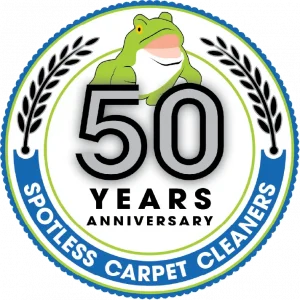Every homeowner wants their home to look aesthetic, comfortable, and healthy. But every time you’re at home, you’re bombarded with the urge to sneeze or skin itchiness. Your lush carpet might be offering more than a dose of house pride. Instead, it’s the main culprit, housing all sorts of allergens that get into the air with each step you take on your carpeting. That poses health risks to you (and your family). The good news is that you can reduce allergies by cleaning your carpet regularly.
Where Do Allergens Come From?
According to Healthline, the billions of microscopic irritants lodged in your carpet come from inside and outside your house. The ones that come from the inside include pet dander, dust, and mold. Pollen grains, dust mites, and other allergens find their way into homes through open windows and the undersides of shoe soles.
Additionally, the carpet fiber, padding, and the adhesive used to hold them together sometimes cause allergic reactions among other individuals. No wonder you can’t figure out why your nose never stops running or your eyes are constantly red and watery. Wonder no more because the answer is right underneath your feet – the carpet.
Symptoms of Carpet Allergies
Just as the causes of allergies vary, so do the symptoms. You or your family member can develop allergy-induced asthma, allergic rhinitis, or dermatitis. The most common symptoms include:
- Sneezing
- Respiratory congestion
- Wheezing
- Shortness of breath
- Swollen eyes or lips
- Coughing
- Sneezing
- Itchy or watery eyes
- Itchy, red skin, or skin rash
- Hives
- Irritated throat
- Chest tightness
When to Clean Your Carpet to Reduce Allergies
There’s always a never-ending battle between the type of flooring and carpeting that work for people living with asthma. Some say that hardwood floors are beneficial to their health. On the flip side, some studies show that a carpet helps contain allergies by acting as filters.
However, it depends on the type of carpet you choose. Berber and Saxony carpets have long, lush fibers with more spaces for allergens to lodge and grow. On the other hand, textile flooring and frieze or shag carpets have high density with less room for allergens to hide. Still, it narrows down to your cleaning regime to ensure you reduce allergies.
Vacuuming
Most homeowners will typically vacuum their carpets once a week. But if you’re asthma-prone, it would be best to clean it twice or thrice a week. Some allergic reactions get exacerbated during specific seasons, for example, when the pollen count is high. If that’s your case, you might want to adjust your vacuuming regimen and make it more frequent.
Deep Cleaning
It is also advisable to give your carpet a professional deep clean once or twice a year to keep allergens away. But if you suffer from allergic reactions, you should call expert cleaners more frequently. Professional carpet cleaners use innovative cleaning techniques and state-of-the-art equipment, removing molds, pet dander, pollen, dust mite, and other irritants.
Partner With Expert Carpet Cleaners and Enjoy an Allergen-Free Home
If you constantly sneeze or feel itchiness on your skin or watery eyes, you now understand that the carpet is the primary culprit. Contact Spotless Carpet Cleaners any time of day or night, and we’ll be glad to offer professional cleaning solutions to reduce allergies.

